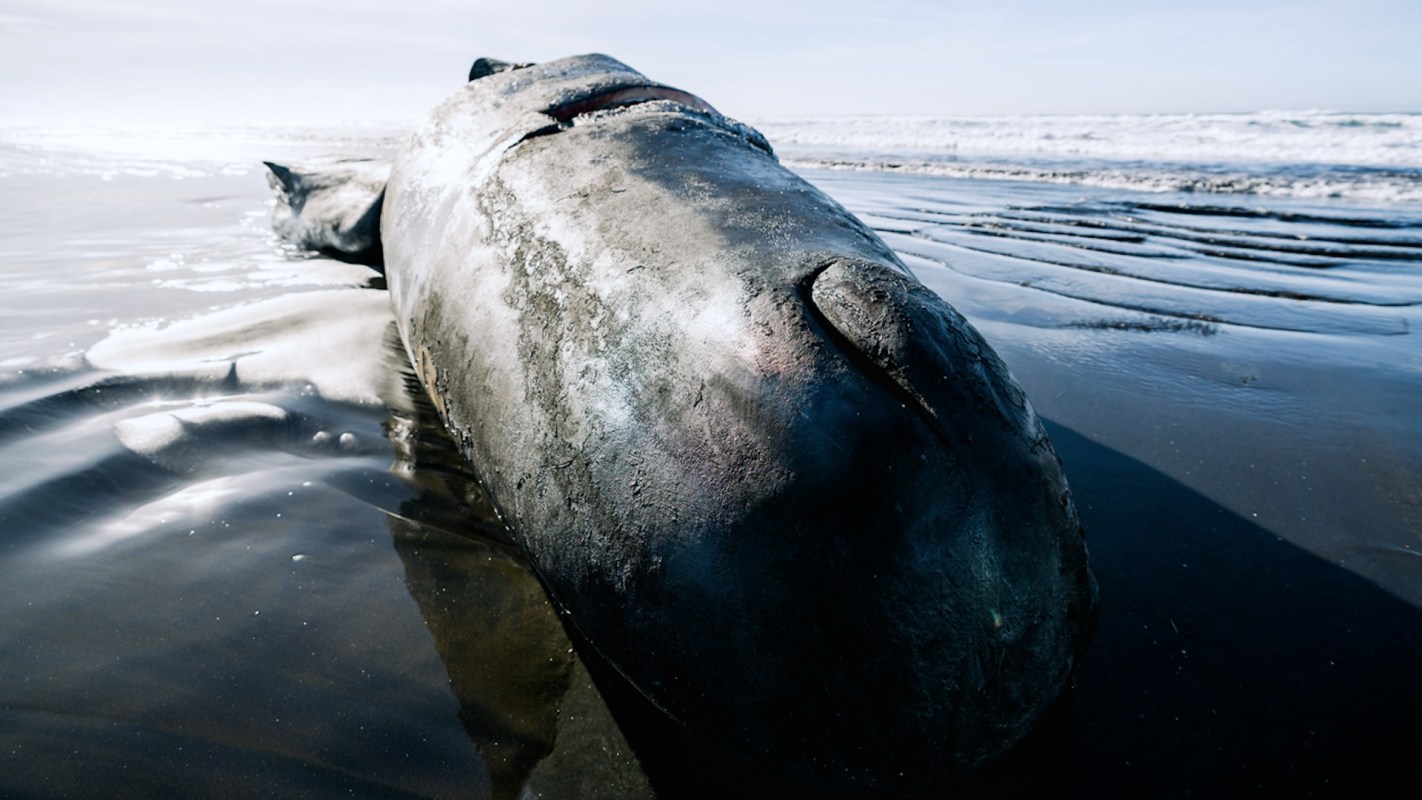An endangered sperm whale that was recently stranded on a Florida beach died after officials were unable to rescue it.
What happened?
In March, a sperm whale became stranded on a shallow sandbar off Florida's Gulf Coast in the city of Venice. High winds and surf prevented rescuers from helping the animal make its way back into the ocean, and it started experiencing labored breathing and signs of suffering, according to the Guardian. Officials ultimately decided to euthanize the animal.
At 50,000 to 70,000 pounds, the whale was considered to be severely underweight and struggling to survive, the Guardian also reported.
Laura Engleby, branch chief with the marine mammal division at the National Oceanic and Atmospheric Administration, told local news outlet WTVT that it's rare for a sperm whale to get stranded in this area.
"It's really unusual," Engleby said. "The last one I remember being at was in 2008. We get about two sperm whales stranded a year in the southeastern US along the Gulf Coast – [which is] not as frequently."
Why is this stranding concerning?
Sperm whales are listed as endangered under the U.S. Endangered Species Act, meaning the species is in danger of extinction throughout all or a significant portion of its range.
Watch now: Alex Honnold test drives his new Rivian
These mammals face a barrage of threats, including collisions with water vessels, entanglement with fishing gear, ocean noise, marine debris, oil spills and contaminants, and a warming world. According to NOAA, our planet's changing climate can affect whale migration, feeding, and breeding.
Whales play an important role in the ecosystem, enabling tourism opportunities and supporting a web of life. They can even help us fight a warming world, as they play an important role in carbon sequestration.
Though rare in this area, around 2,000 strandings like this happen each year. For instance, in July 2023, dozens of pilot whales were beached in Western Australia. That same month, 55 whales were stranded on a beach in Scotland — only one survived.
Beachings are rare enough that they do not pose a significant threat to any species, according to the Fish & Wildlife Foundation of Florida. However, experts have also said that an overheating planet could increase the number of whale beachings.
What's being done to conserve whales?
A number of organizations are dedicated to the conservation of whales and other marine wildlife, including Whale & Dolphin Conservation USA, the National Marine Sanctuary Foundation, Ocean Alliance, World Wildlife Fund, and others.
The Caribbean island of Dominica also recently created the world's first protected area for sperm whales. The sanctuary spans nearly 300 square miles, and scientists say the reserve will serve a hidden benefit of helping to fight our climate crisis, the Guardian reported.
Join our free newsletter for cool news and cool tips that make it easy to help yourself while helping the planet.









